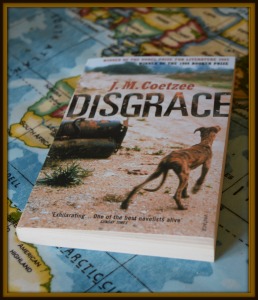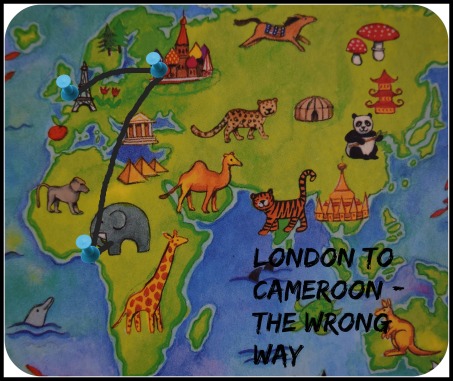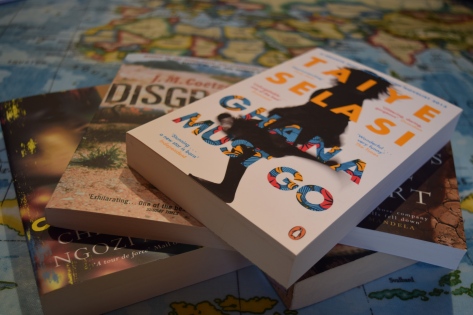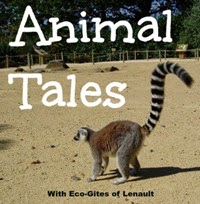
And secondly just share a little taster of our travels over the holiday period – one of those unexpected moments that will hopefully make you smile as much as it did me:
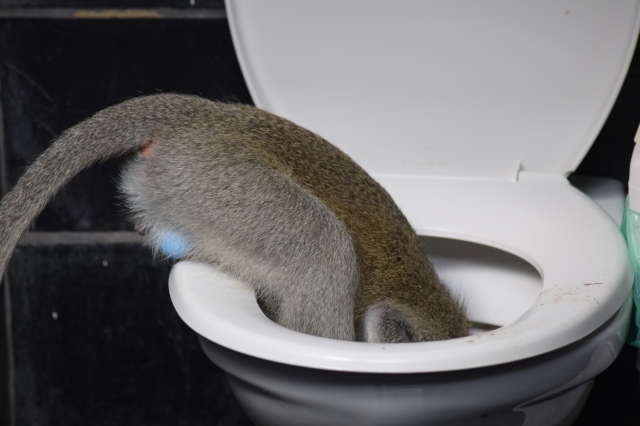
Yes – that is a monkey with his head stuck in a toilet!
I hope you all enjoyed your breaks (if you got one….) and see you soon x
We’re back!
After a wintersummer (it’s winter here in the southern hemisphere but Frances, my Africa linky partner, is up in Kenya so summer for her) of fun and indulgence it’s time to roll up our sleeves, spit on our hands and get back to work. And this means another Stories from Blogging Africa link-up!
In case you’ve missed our first two linkys, this is a chance for anyone, anywhere in Africa who blogs to share their work. We don’t care what your blog is about, whether it’s travel or literature or expat life or politics or even sport – all we ask is that you either in Africa or write about Africa. In fact, the more diverse the better – see this as a great way to discover things about this great continent that are as yet totally unknown to you.

What can be more African than an African elephant?
If you want to know what a link-up is and how it works first of all take a look at our earlier linkys – HERE and HERE. You will be taken to a page where you can click on a variety of blogs. Have a read and please, please if possible leave a comment, give it a like, let people know you have visited. This only works if people visit each others blogs.
So if you want to join in all you have to do is write a new blog post or pick one that is already published, grab the badge below and add it to your post with a link to this site , click on the frog link below and then simply follow the instructions to add your post. Happy posting – I look forward to reading your Stories from Blogging Africa and, please, don’t forget to check out the other posts in the link-up.
The next Stories from Blogging Africa link-up will be out this WEDNESDAY. Yes, you heard that right, this WEDNESDAY. August 24th. Only three days away.

Soweto market
If you haven’t participated before, this is a very simple link-up for anyone who blogs in or about Africa. All you have to do is have a post ready to go on Wednesday, add it to the page, check out the other posts (and hopefully like/comment) and voila! You’re done. See, couldn’t be simpler.
But in case you are still confused, here are the links to the two previous link-ups we’ve already done – this one from May and then this one from June.
And yes, we did miss July but it was the long holidays, we were travelling, life got in the way…..
Please comment below if you have any questions but otherwise, I hope to see you on Wednesday! Happy blogging folks.
In this entry to my series, Annie Wright of A Wright Adventure (also on Facebook and instragram at awrightadventure) takes us through a day with her three beautiful boys, from sun up to sun down. I can hear those cicadas and smell that dusty road from here!
————–
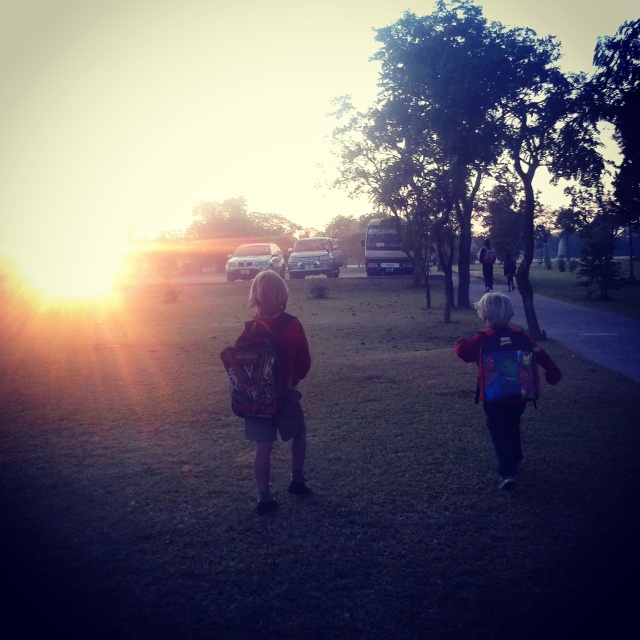
6:30 : Sun rise walk / run to drop big boys of at school bus.

7:00 : Breakfast with my baby blue. Although most of his seems to go on the floor.
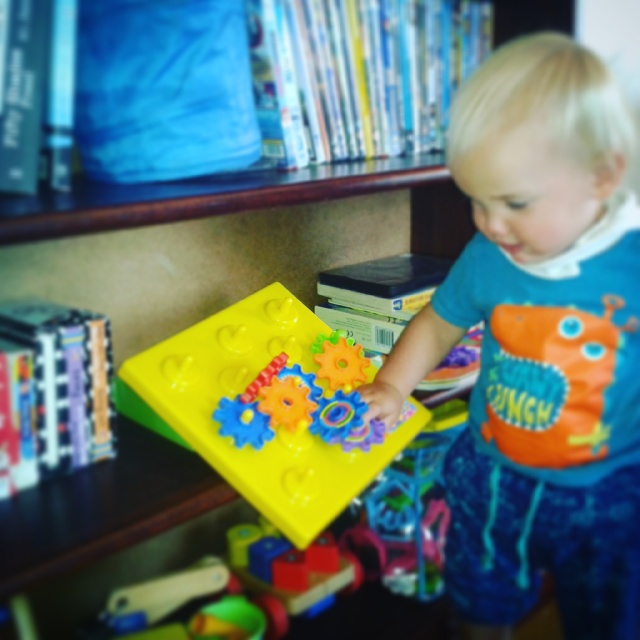
8:00 : Baby blue gets as many toys out as possible!

10:00 : Outside play with Baby blue. Picking our strawberries.

12:30 : Pick up middle man from nursery. Red dirt roads and Blue skys.

14:00 : Lego boy comes home on the bus and bounces with Baby Blue.

17:45 : Beautiful sun set but it means it is time for insect replant.
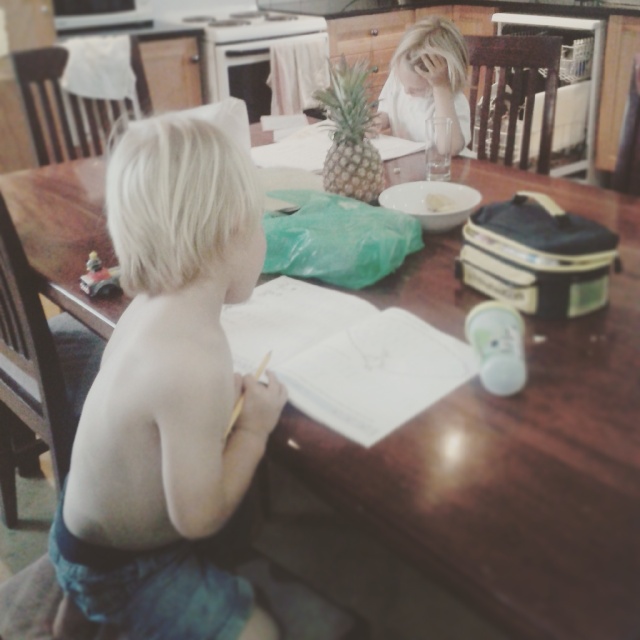
18:00 : Homework time.
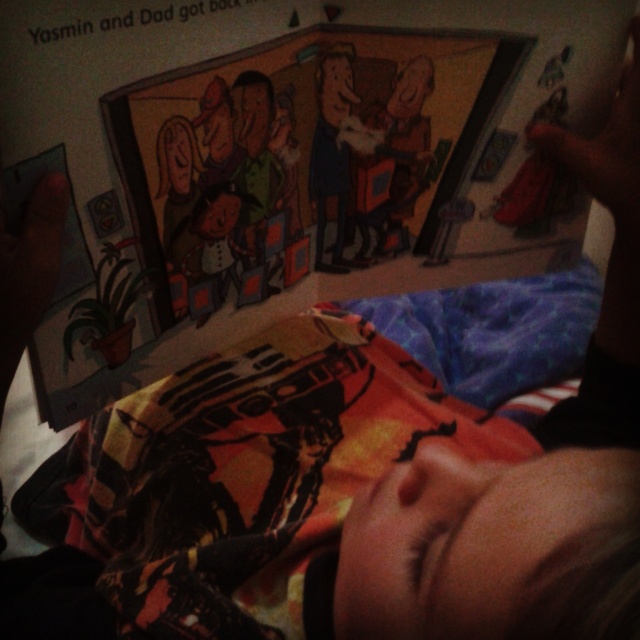
19:15: Lego boy reads me a bed time story.
If you want to read more Day in My Expat Life entries then please click here – and let me know if you would like to feature in this series!

Beautiful African jacarandas in Pretoria
Started by two expat bloggers – me, here in Pretoria South Africa and Frances of the Africa Expats Wives Club in Nairobi, Kenya – we thought this would be a great way to meet other bloggers on the continent and find out a bit more about what life is like in other African countries.
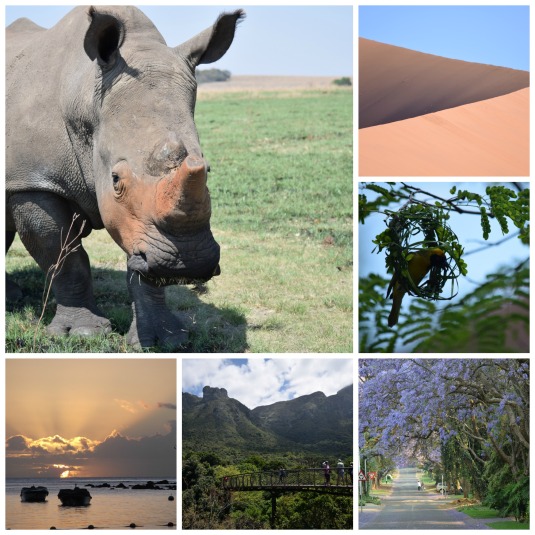
The beauty of Africa
For those new to link-up’s, this is a place to post links to posts written by you on your own blog all with a common theme (in this case Africa). You can then visit as many other blogs as possible to see what others have written about. This is a great way to hopefully get to know some new bloggers and find out about life elsewhere on this amazingly diverse continent.
We are keeping this link-up as flexible as possible to start with and the only rules are that your posts should not be offensive nor should they be pure advertising. We will remove any that do not follow these two guidelines.
Otherwise all we want from you is an African related post, whether it be about your life, about politics, or wildlife or travel; whether it be in story-form or a photographic post – so long as it conveys something about the continent. Although you are not obliged to read any other posts, it will be a very boring link-up if everyone just posts and runs so our suggestion is to at least visit the two host’s posts and two or three others.
Please grab the badge below to add to the bottom of you post and link it back to this page and then add your post by clicking on the froggy link at the bottom. Let me know in the comments section if you are experiencing any problems – this is the first time we have done this so I apologise now for any technical hiccups! Otherwise I look forward to reading your stories 

Are you a blogger? Do you live in Africa? Then please join a brand-new link-up starting later this month.
From Angola to Zimbabwe, Algeria to Zambia we want you writers and photographers from all over the continent to share a bit of your life with us. The idea for a link-up specifically for bloggers in Africa started when I began corresponding with Frances who runs the wonderful Africa Expat Wives Club – which, for those of you who don’t already know isn’t a club at all but a very insightful blog about life in Kenya. Looking for a way to better connect with other writers on the continent I suggested a blog link-up and the idea rolled from there.

This is my African world – but what’s yours?
The idea will be to link up on a monthly basis with ANY Africa-related post, whether it be funny, serious, political, photographic…even a poem or short story is welcome, in fact the only rules really are that the post mustn’t be offensive and we don’t accept posts that are pure advertising. A new post would be great, but if you don’t have something relevant written recently then an old post is good too.
The first link-up will be on Wednesday May 25th and we hope to continue monthly from there, alternating between this blog and the Africa Expat’s Wives Club. If you want to join in then all you need to do is leave your contact below – either email or twitter name, or email me directly at [email protected] and we will remind you closer to the date!
I loved this book. It was an interesting story and it was also one of those tales you could interpret in so many different ways. I spent a bit of time reflecting on what it all meant before I did finally read some reviews – and then realised that in fact there were almost as many different interpretations as reviews, and that in the end it is up to us – the reader – to decide what it all means.
In the book, university professor (David Lurie) resigns from his job in “disgrace” after having an affair with one of his students. It appears that the “disgrace” isn’t so much the affair as the fact that he gives her a pass mark in an exam that she doesn’t actually sit. Of course, this in itself is open to interpretation – although this is what he is pulled up for, could it be that this is the best way to get rid of the dinosaur that he appears to have become?
Lurie moves to live with his daughter Lucy in the country – and settles into an uneasy life with her. But the life is torn apart after a group of men attack Lurie, rape Lucy and shoot the dogs Lucy looks after.
This is the crux of the story, and the part which is perhaps the most open to interpretation. Why does Lucy not condemn her attackers? Does she see it as the price she needs to pay for the crimes of her people? Is this the big divide between her and her father, who represents the older generation? Does she need her father to see that he isn’t so different from the men that attacked her – although he wasn’t violent with his young student lover, he undoubtedly used his power to get what he wanted from her, and at no point does it appear she was willingly complicit in the affair. Is the “disgrace” of the title the attack, or the reaction to the attack? Or is it Lurie’s blindness about what he has done and his refusal to link events?
Lurie moves away from his daughter when their relationship deteriorates following the attack, although eventually makes his way back to the countryside where she lives. He works with one of Lucy’s friends putting down unwanted pets – mostly dogs – and the final scene sees him choose a lame dog that he had previously saved from execution. My own interpretation of this is that this is the author showing Lurie finally accepting that it’s time he changes, that the “lame dog” that he is needs to be put down. An end to the old ways?
There is so much more that could be read into Disgrace, but I am sure the reason it has been so widely praised and won the Booker and Nobel prizes is that it so neatly encompasses so many themes and conflicts (Apartheid, gender, the old versus the new) in such a relatively short and simple story. As someone who is moving to South Africa later this year, it also helped frame some of the big issues I will undoubtedly encounter. I thoroughly recommend this book.
This book is reviewed as part of the Africa Reading Challenge.
You can read my earlier review of Lauren St John’s Dolphin Song here.
I start this series with a journey whichstarted out going in completely the wrong direction, and included a silent brother, a wedding cake and a very long wait at Moscow airport.
——————-
Off to Cameroon
Back in the early to mid-nineties, my father was lucky enough to be appointed to a job as her Majesty’s representative in Cameroon. A country that most people know little about, it was the chance for us to discover somewhere that really was a bit off the beaten track. Many of the places we visited were other-worldly. It often felt like we were back in time, especially when we got away from the main urban areas into the rural parts of the country, where people still lived a very basic, simple life around hunting and their communities.
At the time of my parent’s posting, I was living and working in the UK, but I managed to make trip out to see them two or three times. However, for some reason getting to Doula (the commercial centre – they lived in Yaounde but I don’t think there was an international airport in the capital) wasn’t as straightforward as it should have been. There were of course flights. But there didn’t seem to be direct flights from the UK – I don’t ever remember getting on a plane at one end and off at the other and that being that. We always had to go via somewhere.
If you were lucky, that would be via Geneva with Swiss Air. But one time I wasn’t lucky. One time I had to go via Moscow. With Aeroflot. Accompanied by my very sulky brother.
If you look on a map, you will see that to get to Cameroon from the UK, you really should not be flying via Moscow. But for some reason, this wasn’t just the cheapest flight – it was the cheapest flight by MILES. So with four children to pay for, I guess my parents thought they could afford the cost of seeing us for Christmas by making us go the long way round. So off we set.
The flight from London to Moscow was uneventful. The only thing I recall about it was one of the other passengers complaining because she wasn’t served the vegetarian meal she had ordered. Having visited Russia just a few years earlier, I smirked to myself – she really was living in cloud cuckoo land if she thought she was going to get the same experience as she would on BA.
Moscow
We arrived safely at Moscow – and disembarked. All I knew at this point was that we had 12 hours to fill, no food, no roubles – and had been told strictly NOT TO EAT ANY FOOD THEY TRIED TO GIVE YOU. Looking back, I can only assume the airline gave us a complimentary meal to make up for the long transit time. But I was careful not to touch any of it. One of my parents’ friends wasn’t quite so cautious – he arrived at their home after following the same journey and was severely ill for the first half of his holiday.
So no food, nothing to do (although I am sure I must have had a book with me) and a brother who wasn’t talking to me. We couldn’t leave the airport as we didn’t have visas. Plus it was winter and we were dressed for the Cameroonian weather not for the snow and ice or Russia. I am pretty sure there wouldn’t have been much to amuse me for the time we were at the aiport. It’s all a blur now but I can make a guess that one of my favourite pastimes – people watching – probably filled a few hours.
Eventually we were allowed back on the plane. At this stage we were joined by the Cameroonian contingent. As anyone who has lived in west Africa knows, the people you are going to get on a flight to that part of the world are going to be very different from the ones you would have had on the flight from London. For a start, there’s the carry-on baggage.
I don’t know whether ground staff just give up on trying to control what people take on flights to certain parts of the world. This was, of course, pre 9/11 so everything was a bit more lax back then. Remember, this was also Aeroflot in the nineties. Yup, it felt much more like getting on a very busy, noisy, excitable bus than an international flight.
To add to the effect, one of our fellow passengers was obviously on his way to a wedding and had with him a complete wedding cake in a box. Which he carefully placed in the overhead locker above his head. There had already been some kerfuffle over seats resulting in a bit of tension between this man and another passenger. But things seemed to be calming down and we took off.
Things go downhill…
It wasn’t long though before it all started to go downhill. Wedding-cake man was sitting comfortably in his seat, but the other man was obviously still not happy. Whether it was to do with the amount of space his cake was taking up I don’t know, but the second passenger decided – perhaps with the intention to annoy, perhaps innocently – to place an item (possibly a coat) in the same overhead locker as the cake. In fact, right on top of the cake.
Well, all hell broke loose. As well as the earlier argy-bargy over seats, I suspect insults had continued to be traded as the flight got underway. Whether these men knew each other, or whether they recognised each other as enemies for some reason (tribal?) was beyond my understanding, but one thing was clear. Both men were looking for a fight. And a fight was exactly what they got – right there, standing up, in the middle of the plane’s aisle. A proper, viscous, fist-fight. About two or three seats from where we were seated.
I don’t remember much more about what happened – I am pretty sure they were separated by the crew, who didn’t seem massively overwhelmed by this turn of events. I suspect they’d seen it all before, and worse. Passengers were moved around, new seats were found, the cake was checked and found to still be intact. Everyone calmed down and the flight continued in peace.
But for me, one thing had changed. Despite the fact that for the past 18 hours or so my sulky brother had barely said a word to me, this excitement had made him finally come out of his shell. Again, I can’t remember what he said but just that it was a relief that he finally spoke to me. And that for the rest of the flight I had someone to make conversation with. Even it was just the odd grunt. So thank-you Mr Wedding Cake man, you not only provided us with the best entertainment in an otherwise gruelling 24 hour journey which started by going the wrong way, but you also made my brother talk to me.
I never flew Aeroflot again.
Remember – I’d love to hear your stories. Let me know if you would like to write a guest post for this series, I’m interested in all sorts of journey’s not just flights. Planes, trains, automobiles – all welcome! Leave a message or send me an email – [email protected].
- Disgrace by JM Coetzee (set in the country we are moving to, South Africa, it was the first of my new books I delved into)
- Ghana Must Go by Taiye Selasi
- Americanah by Chimamanda Ngozi Adichie
- Half of a Yellow Sun by Chimamanda Ngozi Adichie
- Things Fall Apart by Chinua Achebe
I’m happy with my choices so far but realise they are very West/South Africa-centric so will be looking out for literature from the North and East of the continent next.
In the meantime, I recently finished reading Lauren St John’s Dolphin Song to my daughters. As the rules of the challenge say it’s fine to review children’s books, as well as books you’ve read to someone else, I thought I would make this my first review.
Lauren St John is an author of both children and adult fiction, who was born in Zimbabwe but now lives in England. I think the blending of these two cultures was what first attracted my two daughters (who are aged 7 and 9) to her books, as she follows a young British girl moving from her home country to South Africa following the death of her parents in a house fire. She covers this in the first book in the series, The White Giraffe and I was initally worried that this was a big topic to take on for such young children, especially my over-sensitive 7-year-old; but in fact they took it all in their stride and don’t seem to have been overly-worried by the untimely demise of Martine’s parents.
Perhaps this is because StJohn takes the story very quickly into a fantastical place, a safari park near Cape Town, where Martine goes to live and have adventures with – amongst other things – a white giraffe called Jemmy. As well as painting a beautiful picture of a fascinating country – which is perfect for us as we prepare for our move to South Africa – Lauren also weaves in many other important elements of childhood life into her book, including homesickness, starting a new school and bullying.
These are all topics that she continues to cover in her second book, Dolphin Song. In this story, Martine and a group of classmates (including the bullies) are ship-wrecked off the coast of South Africa, rescued by dolphins and end up on an island near Mozambique. As well as the issues visited in her first book – bullying, friendship, different culture, – the author delves deeper into a topic that is obviously close to her heart – conservation. In this book, the children battle to save a pod of beached dolphins and find out why they were stranded. St John ties these messages neatly into the story-line without making it feel too laboured – I don’t think at any point my children felt they were being preached to as they listened to the exciting tale unfold.
 By the end of the book, the children are rescued, have made friends and everyone seems relatively happy. But St John doesn’t sugar-coat and it is made clear that despite their having to come together to survive on the island, Martine does not expect to suddenly be best friends with the former-bullies once they are back at school. One of the dolphins they are trying to rescue also dies, a strong message that nature is a messy and unpredictable thing.
By the end of the book, the children are rescued, have made friends and everyone seems relatively happy. But St John doesn’t sugar-coat and it is made clear that despite their having to come together to survive on the island, Martine does not expect to suddenly be best friends with the former-bullies once they are back at school. One of the dolphins they are trying to rescue also dies, a strong message that nature is a messy and unpredictable thing.
Having finished Dolphin Song, my two children went straight on to read the next books in the Martine quartet – The Last Leopard and The Elephant’s Tale, a sure sign that they have enjoyed these books as much as I did. This partly might be because they are curious about their new home-to-be, but I think there is enough adventure, intrigue and childhood concerns in this book to appeal to all children, wherever they live.
Have you found any relevant fiction books to read to your children before you moved to a new country? Did you find this helped with the transition? Or have you used books like this to help your children cope with things bullying? If anyone has any more children’s fiction set in southern African they would recommend, I would love to hear about it.



